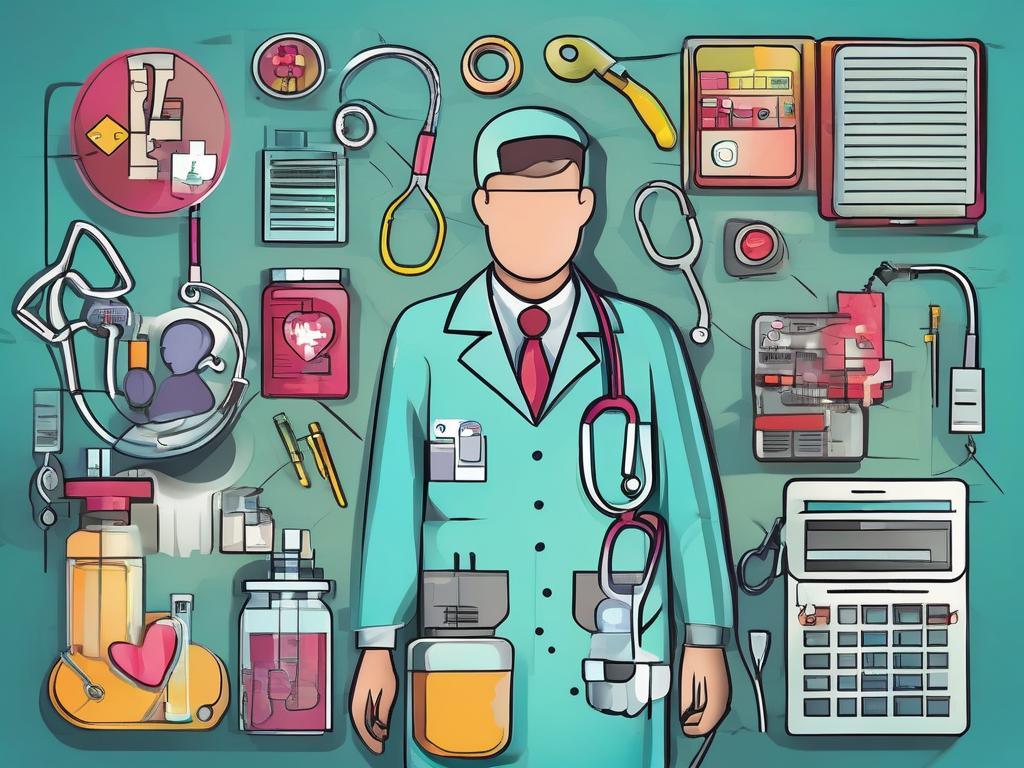Pros and Cons of the Medical Device Industry: Key Advantages and Challenges
The medical device industry is one of the most lucrative and fast-growing sectors in healthcare, offering immense opportunities for professionals and entrepreneurs alike. However, like any industry, it comes with its own set of challenges. Whether you’re considering a career shift, investing, or launching a startup in this field, understanding the pros and cons is crucial for success. In this guide, we’ll break down the key benefits and hurdles of working in the medical device industry—so you can make informed decisions and position yourself for wealth and success.
Why the Medical Device Industry is a Goldmine
The medical device industry is a powerhouse of innovation, profitability, and career growth. Here’s why so many professionals are flocking to this sector.
1. High Demand and Market Growth
The global demand for medical devices is skyrocketing due to aging populations, rising chronic diseases, and technological advancements. According to recent data:
| Year | Global Market Size (USD Billion) | Growth Rate (%) |
|---|---|---|
| 2023 | 512.3 | 5.8 |
| 2025 (Projected) | 612.7 | 6.2 |
| 2030 (Projected) | 850.0 | 7.0 |
Key drivers of this growth include:
- Aging populations requiring more medical interventions
- Technological advancements like AI and IoT in medical devices
- Increased healthcare spending in emerging markets
2. Lucrative Career and Business Opportunities
Whether you’re an engineer, sales professional, or entrepreneur, the medical device industry offers high-paying roles and business potential. Some of the top-paying jobs include:
- Medical Device Sales Reps (Average salary: $120K+)
- Biomedical Engineers (Average salary: $95K+)
- Regulatory Affairs Specialists (Average salary: $85K+)
For entrepreneurs, launching a medical device startup can be highly profitable, especially with the right guidance from experts like Dune Medical Devices Inc..
Challenges in the Medical Device Industry
While the opportunities are vast, the industry also presents significant hurdles. Here’s what you need to watch out for.
1. Strict Regulatory Compliance
The medical device industry is heavily regulated to ensure patient safety. Navigating FDA (U.S.) and CE (Europe) approvals can be complex and time-consuming.
| Regulatory Body | Approval Time (Average) | Cost (USD) |
|---|---|---|
| FDA (Class II Device) | 6-12 months | $150K – $500K |
| CE Mark (Class IIa) | 4-8 months | $100K – $300K |
2. High R&D and Manufacturing Costs
Developing and producing medical devices requires substantial investment. Key expenses include:
- Research & Development ($1M+ for complex devices)
- Clinical Trials ($500K – $5M depending on scope)
- Manufacturing Setup (Specialized facilities required)
How to Succeed in the Medical Device Industry
Despite the challenges, many professionals and companies thrive in this space. Here’s how you can too.
1. Partner with Experts
Working with experienced firms like Dune Medical Devices Inc. can help you navigate regulatory hurdles and accelerate product development.
2. Focus on Innovation
Differentiate your product by leveraging cutting-edge technologies like:
- AI-powered diagnostics
- Wearable health monitors
- Minimally invasive surgical tools
3. Build Strong Industry Networks
Attend trade shows, join professional associations, and collaborate with healthcare providers to gain market insights and partnerships.
Conclusion: Is the Medical Device Industry Right for You?
The medical device industry offers unparalleled opportunities for wealth and career growth, but success requires strategic planning and expert guidance. If you’re ready to capitalize on this booming sector, contact Dune Medical Devices Inc. today to explore how you can break into this lucrative field.
Visit https://dunemedicaldevicesinc.com/shop-2/ for more insights.
FAQ Section
What are the biggest advantages of working in the medical device industry?
The industry offers high salaries, strong market growth, and opportunities to innovate life-saving technologies.
What are the main regulatory challenges?
FDA and CE approvals can be costly and time-consuming, requiring extensive documentation and testing.
How can I start a medical device business?
Partner with experts like Dune Medical Devices Inc. to navigate regulations and accelerate development.
What skills are needed for a career in medical devices?
Technical expertise (engineering, biology), regulatory knowledge, and strong sales or business acumen are key.
Is the medical device industry recession-proof?
Healthcare is relatively stable, but economic downturns can impact elective procedures and funding.

